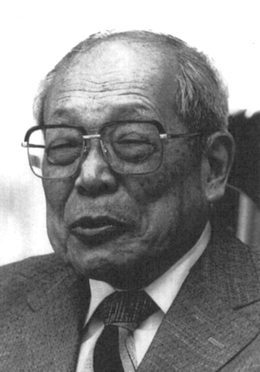
Honolulu is the capital and most populous city of the U.S. state of Hawaii, which is in the Pacific Ocean. It is the unincorporated county seat of the consolidated City and County of Honolulu, situated along the southeast coast of the island of Oʻahu, and is the westernmost and southernmost major U.S. city. Honolulu is Hawaii's main gateway to the world. It is also a major hub for business, finance, hospitality, and military defense in both the state and Oceania. The city is characterized by a mix of various Asian, Western, and Pacific cultures, reflected in its diverse demography, cuisine, and traditions.

Sarvepalli Radhakrishnan, natively Radhakrishnayya, was an Indian philosopher and statesman. He served as the second president of India from 1962 to 1967. He was also the first vice president of India from 1952 to 1962. He was the second ambassador of India to the Soviet Union from 1949 to 1952. He was also the fourth vice-chancellor of Banaras Hindu University from 1939 to 1948 and the second vice-chancellor of Andhra University from 1931 to 1936.

The University of Hawaiʻi System, formally the University of Hawaiʻi and popularly known as UH, is a public college and university system that confers associate, bachelor's, master's, and doctoral degrees through three universities, seven community colleges, an employment training center, three university centers, four education centers and various other research facilities distributed across six islands throughout the state of Hawaii in the United States. All schools of the University of Hawaiʻi system are accredited by the Western Association of Schools and Colleges. The UH system's main administrative offices are located on the property of the University of Hawaiʻi at Mānoa in Honolulu CDP.
Tu Weiming is a Chinese-born American philosopher. He is Chair Professor of Humanities and Founding Director of the Institute for Advanced Humanistic Studies at Peking University. He is also Professor Emeritus and Senior Fellow of Asia Center at Harvard University.

The Kyoto School is the name given to the Japanese philosophical movement centered at Kyoto University that assimilated Western philosophy and religious ideas and used them to reformulate religious and moral insights unique to the East Asian philosophical tradition. However, it is also used to describe postwar scholars who have taught at the same university, been influenced by the foundational thinkers of Kyoto school philosophy, and who have developed distinctive theories of Japanese uniqueness. To disambiguate the term, therefore, thinkers and writers covered by this second sense appear under The Kyoto University Research Centre for the Cultural Sciences.

The University of Hawaiʻi at Mānoa is a public land-grant research university in Mānoa, a neighborhood of Honolulu, Hawaii. It is the flagship campus of the University of Hawaiʻi system and houses the main offices of the system. Most of the campus occupies the eastern half of the mouth of Mānoa Valley, with the John A. Burns School of Medicine located adjacent to the Kakaʻako Waterfront Park.
The East–West Center (EWC), or the Center for Cultural and Technical Interchange Between East and West, is an education and research organization established by the U.S. Congress in 1960 to strengthen relations and understanding among the peoples and nations of Asia, the Pacific, and the United States. It is headquartered in Honolulu, Hawaii.

Hajime Nakamura was a Japanese Orientalist, Indologist, philosopher and academic of Vedic, Hindu and Buddhist scriptures.
Robert McDermott is professor of Philosophy and Religion at the California Institute of Integral Studies in San Francisco. He received his Ph.D. in 1969 in philosophy from Boston University and is president emeritus of the California Institute of Integral Studies. He has taught at Manhattanville College (1964–71) and is professor emeritus and former chair of the Department of Philosophy at Baruch College, CUNY (1971–90). He was secretary of the American Academy of Religion (1968–71) and secretary treasurer of the Society for Asian and Comparative Philosophy (1972–76).

The University of Hawaiʻi Press is a university press that is part of the University of Hawaiʻi.

Anantanand Rambachan is a professor of religion at St. Olaf College.

Eliot Deutsch was a philosopher, teacher, and writer. He made important contributions to the understanding and appreciation of Eastern philosophies in the West through his many works on comparative philosophy and aesthetics. He was a Professor Emeritus of Philosophy at the University of Hawaii.
David J. Kalupahana (1936–2014) was a Buddhist scholar from Sri Lanka. He was a student of the late K.N. Jayatilleke, who was a student of Wittgenstein. He wrote mainly about epistemology, theory of language, and compared later Buddhist philosophical texts against the earliest texts and tried to present interpretations that were both historically contextualised and also compatible with the earliest texts, and in doing so, he encouraged Theravada Buddhists and scholars to reevaluate the legitimacy of later, Mahayana texts and consider them more sympathetically.
Chung-Ying Cheng is a distinguished scholar of Chinese philosophy and Professor in the Department of Philosophy at the University of Hawaiʻi at Mānoa. He is considered one of the pioneers who formalized the field of Chinese philosophy in the United States in the 1960s.

East Mountain Teaching denotes the teachings of the Fourth Ancestor Dayi Daoxin, his student and heir the Fifth Ancestor Daman Hongren, and their students and lineage of Chan Buddhism.
Buddhist studies, also known as Buddhology, is the academic study of Buddhism. The term Buddhology was coined in the early 20th century by the Unitarian minister Joseph Estlin Carpenter to mean the "study of Buddhahood, the nature of the Buddha, and doctrines of a Buddha", but the terms Buddhology and Buddhist studies are generally synonymous in the contemporary context. According to William M. Johnston, in some specific contexts, Buddhology may be viewed as a subset of Buddhist studies, with a focus on Buddhist hermeneutics, exegesis, ontology and Buddha's attributes. Scholars of Buddhist studies focus on the history, culture, archaeology, arts, philology, anthropology, sociology, theology, philosophy, practices, interreligious comparative studies and other subjects related to Buddhism.
Charles Alexander Moore was an American philosopher, historian, sinologist, and writer. He was a professor of comparative philosophy at the University of Hawaiʻi.
Catuṣkoṭi refers to logical argument(s) of a 'suite of four discrete functions' or 'an indivisible quaternity' that has multiple applications and has been important in the Dharmic traditions of Indian logic, the Buddhist logico-epistemological traditions, particularly those of the Madhyamaka school.
Pahalawattage Don Premasiri is a Sri Lankan Buddhist scholar specializing in the areas of Buddhist ethics and Buddhist philosophy. Premasiri's academic training represents a synthesis of both the Buddhist and Western philosophical traditions, first at the University of Peradeniya and subsequently at Cambridge and Hawaii. He is currently president of the Buddhist Publication Society and professor emeritus in the Department of Pali and Buddhist Studies at the University of Peradeniya.
Roger T. Ames is a Canadian-born philosopher, translator, and author. He is Humanities Chair Professor at Peking University in Beijing, China, Professor Emeritus of Philosophy at the University of Hawaiʻi at Mānoa, and a Berggruen Fellow. He has made significant contributions to the study of Chinese and comparative philosophy, in which he emphasizes the importance of understanding Chinese philosophy on its own terms rather than through the lens of Western philosophy.









